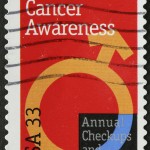I just printed an article from the Annals of Internal Medicine that confirms my own leanings toward prostate screening tests. In one of my old posts I told the story of having an abnormal blood test for kidney function and seeking out our senior urologist at Duke. I was a clinical Nephrology fellow at the time and when I was seen, the Chief of Urology asked what kind of diet I was on.
I groaned at that point since I realized I was in the middle of a research project and eating a very high-protein diet. That's why the more accurate of the two blood chemistry tests was entirely normal and the other, clearly influenced by my diet, was high.
He then said, "As long as you're here, Peter, let me check your prostate.
The digital rectal exam (DRE) revealed I had a mildly enlarged gland for my age and the urologist said, "You're going to have a TURP by the time you're sixty.
I knew a TURP was a transurethral resection of the prostate. If you look at the Mayo Clinic website I've provided, you'll see it's a procedure to relieve partial obstruction of the urethra, the tube that runs from the bladder through the penis to allow normal urination. The prostate itself, whose major task is to provide seminal (sperm-carrying) fluid, is a walnut-shaped, one ounce gland, or at least it is in younger men. As men age the prostate commonly enlarges. If it does so in a non-cancerous way, the condition is called BPH, benign prostatic hyperplasia (or hypertrophy as I was taught in medical school; the first term implies more cells; the other a bigger gland without specifying how it got that way).
As the prostate gets bigger and partially blocks the outflow of urine, men have a decreased urine stream, difficulty starting its flow, dribbling after urination or a more frequent need to pee, especially at night.
Urologists do about 150,000 TURPs a year in America, although there are a number of other procedures to treat BPH. And they want to do a DRE and draw blood for a PSA on more of us guys than I would agree with. There are other tests in their repertoire: rectal ultrasound, urine flow study and cystoscopy (inserting an instrument into the urethral to actually look at how narrow the passageway is).
The American Urological Association's (AUA) webpage on the surgical management of the condition says 88% of men who have a TURP will have significant improvement in their symptoms. But there are lots of complications that can occur right after the procedure: infection in 15%, bleeding requiring blood transfusion in 5-10%, impotence in 14%, incontinence in 1%. Ten percent may require a second operation within 5 years.
There also are medical therapies for BPH; I take two different pills a day for my BPH and will turn 72 in two weeks. I haven't needed a TURP yet.
But that's benign disease: how about prostatic cancer?
The recent Annals article I mentioned looked at four sets of prostate cancer screening recommendations, all from national organizations: the American College of Preventive Medicine, the American Cancer Society; the AUA and the U.S. Preventive Services Task Force (USPSTF).
After doing so, the Clinical Guidelines Committee of the American College of Physicians (ACP), a national society of internal medicine physicians, issued two guidance statements. ACP wants all clinicians to tell their male patients who are 50 or older and under age 70 that the positive effects of screening for this malignancy are limited and there are considerable potential negative effects.
That being said, if I were an African American man in that age range I'd be much more likely to ask to be screened. Both the incidence rate and the mortality rate from prostate cancer are higher in black men. And if I had a family history of the disease in a first-degree relative (father, brother or son), I might be first in line for a PSA and possibly a DRE. With one such having had it, my risk doubles and with two close relatives having the disease, my chances go up fourfold. That's especially true if they were diagnosed before they turned 65.
Overall a sixth of all men will eventually be diagnosed with cancer of the prostate. It will lead directly to death in a much lower percentage (2.9% was the figure the ACP quoted from a National Cancer Institute fact sheet). So although 2.3-2.5 million men in this country are living with this malignancy and last year nearly a quarter of a million got the diagnosis of prostate cancer in the U.S., a considerably smaller number were likely to die from the cancer itself.
Why does this make sense?
Well let's start with the second of the ACP's guidance statements: the organization says that men with an average risk of the disease shouldn't be screened until they are 50 and those of us 70 and older also should avoid having a PSA as a cancer screening tool. They go further and say men who are not expected to live more than 10 to 15 more years also should not be screened.
The fact sheet from the Prostate Cancer Foundation says it is the most common non-skin cancer in America with a new case very 2.2 minutes and a death every 17.5 minutes. But it's rare in men under 40 with 1 in 10,000 being diagnosed with the ailment versus 1 in 14 who are aged 60 to 69.
If we look at the totals: 97% of men diagnosed with prostate cancer are 50 or older and nearly two-thirds are over 65.
The USPSTF came out with an update to their take on screening guidelines in 2012. They agree that the benefits of these tests, primarily the PSA, are less than the potential harm associated: false-positive tests, psychological effects, biopsies that are not necessary and over-diagnosis of cancers that often do not reach any clinical significance in the lifetime of the patient involved.
In other words, elderly men may well have prostate cancer, but they most commonly die from something else. And screening men at age 40, as the AUA suggest, doesn't appear to be based on any major studies.
If you are a man over 50, but less than 70, or black or first-degree relatives (father or brothers) have had the disease, have a sincere talk with your doc about the risks and benefits of screening.
But I don't fit into any of those groups, so I don't plan to get a PSA unless or until I see different data.
Thank you, ACP, for clarifying the subject, especially since you agree with me.





